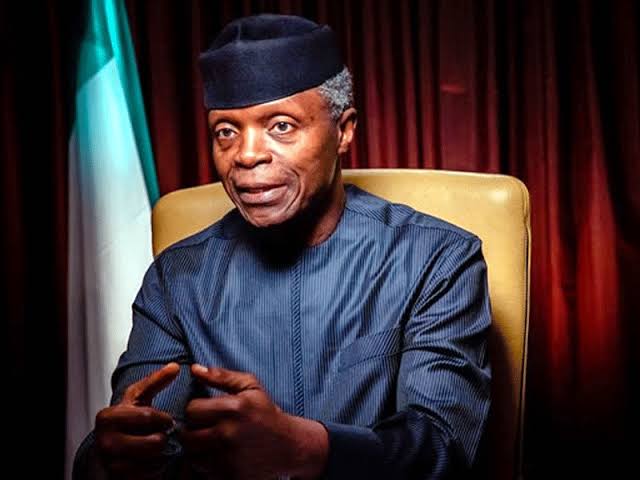Amid growing concerns about the climate crisis in Africa, former Vice President of Nigeria, Prof Oluyemi Osinbajo, has introduced a fresh perspective on addressing these pressing issues. Speaking at the Babacar Ndiaye 2024 Lecture in Washington, D.C., Prof Osinbajo underscored the importance of prioritising human resource investment as a key strategy in the fight against climate change.
He stated, “There’s this need for us to focus on those things that will enable our people – a critical thing for me is an investment in human resources as opposed to just [technology] structures, etc.”
On October 26, during the International Monetary Fund (IMF) and World Bank annual meetings, Prof Osinbajo highlighted the necessity of investing in education to build the capacity of Africa’s young population.
“Investments in education right now are important – because a lot of the technology, a lot of everything we are talking about, will be independent of human capacity – so we will definitely need to invest in human resources,” he explained, emphasising the need for training in digital skills, such as artificial intelligence (AI), to mitigate the effects of climate change.
Read also: Africa Adopts Modern Technology to Improve Governance
The ripple effects of climate change on education and health
Prof Osinbajo illustrated how the climate crisis profoundly impacts educational opportunities and healthcare access across the continent. He pointed out that climate change disrupts essential services, further aggravating existing challenges.
“The climate crisis affects practically everyone; it affects, for example, in some of our countries, educational opportunities; it affects healthcare, right? Because of the devastation that has taken place,” he remarked.
A UNICEF report indicates that climate change threatens vital services, including water, sanitation, and health, posing a significant risk to children’s well-being and future prospects. Prof Osinbajo’s advocacy for a shift towards human capital investment is particularly pertinent in light of these alarming trends.
Diverging views on solutions: Technology vs. human development
While Prof Osinbajo champions human investment as crucial to addressing climate challenges, other experts contend that technological advancements are equally necessary. Mr Mohamed Adow, founder and director of Power Shift Africa, stated, “Technology is an essential part of how we tackle climate change in Africa.”
He underscored the role of renewable energy technologies, which have improved the efficiency of harnessing clean energy from natural resources like wind and sun.
Read also: Tinubu to Meta: Nigeria Will Lead Africa in Digital Technology
The call for international collaboration
Mr Adow also stressed the need for international cooperation, advocating for wealthier nations to facilitate technology transfer to the Global South.
“What would really help accelerate the African energy transition away from fossil fuels would be if this technology, which is largely developed in the Global North, would be shared with countries in the Global South,” he said.
As Africa grapples with the increasing impacts of climate change, a balanced approach that integrates human resource investment with technological innovation remains essential for a sustainable future.




